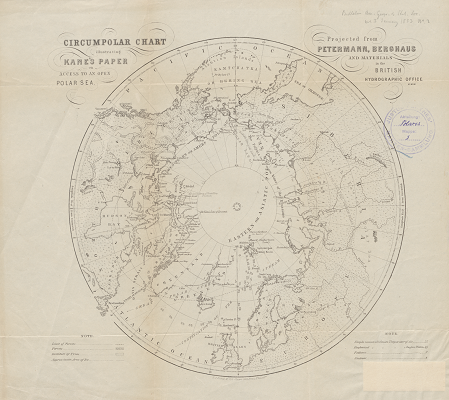The study examines the transatlantic exchange of scientific theories and epistemic objects related to theories of an Open Polar Sea among European and American scientific networks during the early 1850s.
Drawing on Arctic expeditions envisioned by the American explorer Elisha Kent Kane and the Prussian cartographer August Petermann, Kaalund and Woitkowitz show how the notion of expertise in Arctic geography and exploration was rooted in first-hand experience and mediated knowledge in the field along with emergent understandings of the Arctic Ocean as a system of interacting physical phenomena.
Based on archival research in Germany, England and the United States, the paper adopts a comparative and transnational approach to demonstrate how nineteenth-century scientific theories and cartographies of the Arctic moved among Berlin, London, and New York, and in doing so informed Arctic exploration agendas throughout the Atlantic world.
Read the full research article: Nanna Kaalund and John Woitkowitz, "'Ancient lore with modern appliances': networks, expertise, and the making of the Open Polar Sea, 1851-1853," British Journal for the History of Science (2021).
Image: Elisha Kent Kane, ‘Circumpolar chart illustrating Kane's paper on access to an Open Polar Sea’, 1853, Justus Perthes Collection, Gotha, Germany, SPK-90-3 A-02.
